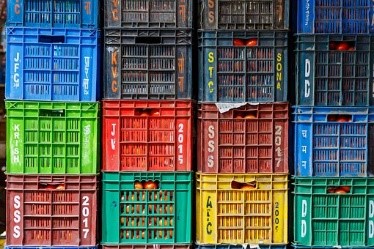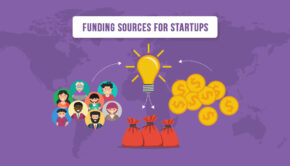Published on October 1st, 2018 | by admin
0What You Need to Know About Returnable Packaging
Using returnable packaging is one business approach considered to not only reduce overhead costs, but it is also a sustainable method of transporting goods used in a variety of industries. This reusable packaging consists of durable containers either handheld or in bulk. Different types of reusable packaging include:

- Reusable wooden pallets are better than single-use lightweight packaging. These timber pallets can withstand repeated use of up to 200 times. Similarly, rugged plastic pallets are also available and made from recycled materials.
- Boxes, trays, and crates. Most packaging manufacturers in the UK offer a variety of boxes, trays, and crates, in different sizes and specifications. These are usually made from wood but are also available in plastic.
- Pallet boxes. This type of packaging is designed for heavy-duty use in warehouses, suitable for transport using forklifts.
- Drums and bulk containers. Drums made from plastic or steel can transport up to 1,000 litres of material. In the UK, around 60% of steel drums are reconditioned and reused.
- Customised reusable packaging systems. Packaging manufacturers offer specialised types of packaging for specific products. Although the upfront cost may be higher, customised packaging offers a host of benefits and can result in savings over a certain period.
Most of these types of reusable packaging are popular across businesses in different industries. Using these reusable packaging options helps reduce the cost of packing and transporting products from one end of the supply chain to another.
Industries using reusable packaging
As mentioned earlier, many businesses benefit from using returnable packaging. These businesses span across different industries. Examples of uses include the following:
- The food and beverage industry. Producers and processors of meat products, distributors of processed food and beverages, fresh fruits and produce distributors, bakery supplies and deliveries, and retailers of grocery products.
- Consumer products and retail. Department store delivery, pharmaceutical products delivery, books and magazines distributors, suppliers for restaurants and fast food chains, membership stores, airline catering, and automobile parts delivery.
- Manufacturing industry. Suppliers of original automotive parts and equipment, suppliers of raw materials for pharmaceutical production, and suppliers of parts used in manufacturing consumer appliances.
These are only a few of the examples for specific businesses relying heavily on returnable packaging. In general, any company that needs to transport products or requires delivery of products from a supplier can benefit from using returnable packaging.
Benefits and trends in returnable packaging industry
Returnable packaging solutions have yet to realise their full potential. Despite the significant initial investment, a company will enjoy a return of investment in a short period of time by considering the cost per trip of reusable packaging compared with single-use and disposable options. Moreover, new manufacturing techniques used in producing reusable packaging further enhance the quality, ergonomic design, safety, and transportation efficiency.
There are also some emerging trends in the industry which further benefit those who use reusable packaging. For example, you can enhance traceability of your products while in transit by using GPS technology. Another emerging trend is producing reusable packaging ready for display, which is extremely beneficial in the retail industry.














